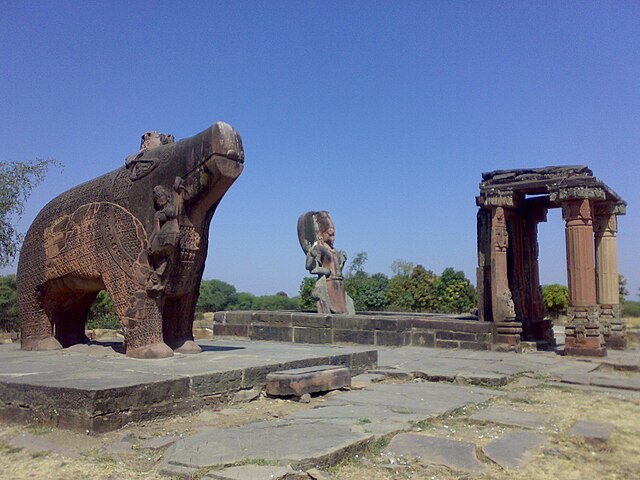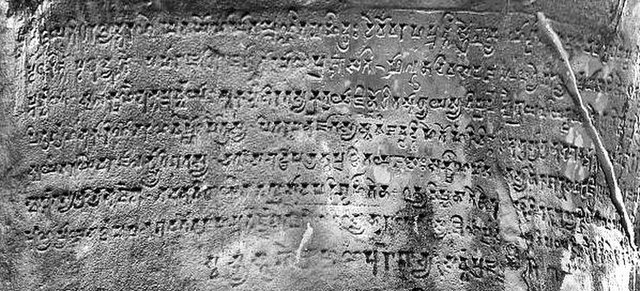Toramana also called Toramana Shahi Jauvla was a king of the Alchon Huns who ruled in northern subcontinent in the late 5th and the early 6th century CE. Toramana consolidated the Alchon power in Punjab, and conquered northern and central India including Eran in Madhya Pradesh. Toramana used the title "Great King of Kings", equivalent to "Emperor", in his inscriptions, such as the Eran boar inscription.
Toramana
The Eran boar (left) on which an inscription relating to Toramana can be found.
The Eran boar inscription.
A rare gold coin of Toramana with Lakshmi on the reverse (c. 490–515), inspired from contemporary Gupta coins, such as those of Narasimhagupta Baladitya. The obverse legend reads "avanipati torama(no) vijitya vasudham divam jayati": "The lord of the earth, Toramana, having conquered the earth, wins Heaven".
The Alchon Huns, also known as the Alkhan, Alchono, Alxon, Alkhon, Alakhana, and Walxon, were a nomadic people who established states in Central Asia and South Asia during the 4th and 6th centuries CE. They were first mentioned as being located in Paropamisus, and later expanded south-east, into the Punjab and Central India, as far as Eran and Kausambi. The Alchon invasion of the Indian subcontinent eradicated the Kidarite Huns who had preceded them by about a century, and contributed to the fall of the Gupta Empire, in a sense bringing an end to Classical India.
Alchon Huns
The word "Alchono" (αλχοννο) in Greek (Greco-Bactrian cursive script), on a coin of Khingila.
Portrait of an older King Khingila, founder of the Alchon Huns, on one of his coins, c. 430 – 490 CE.
The silver bowl in the British Museum








